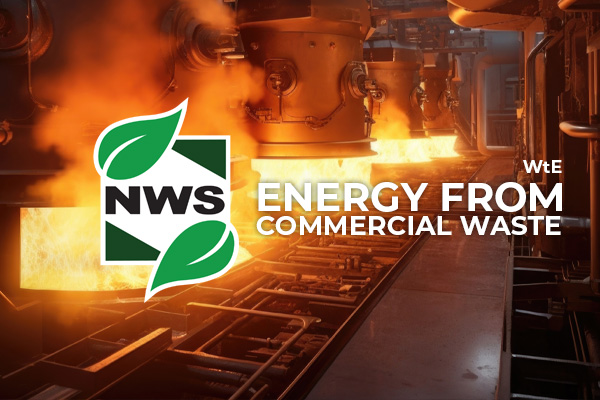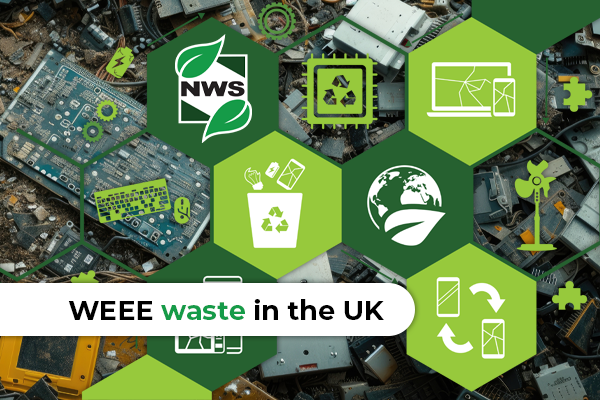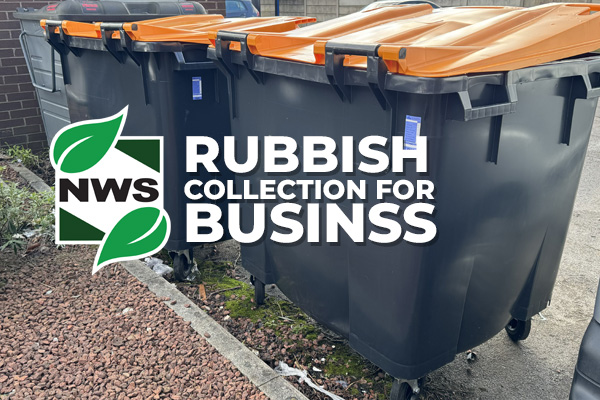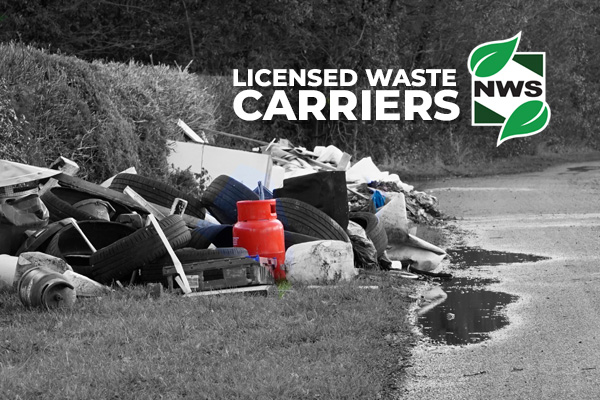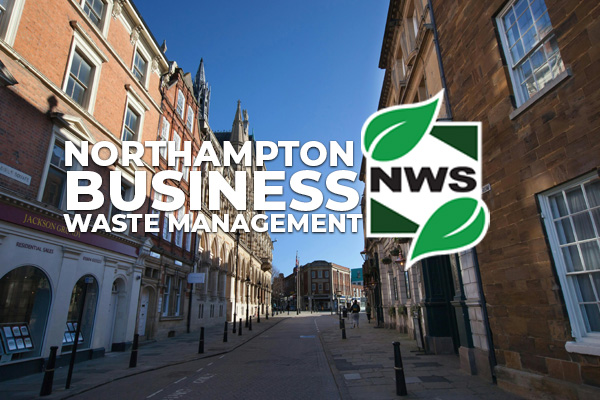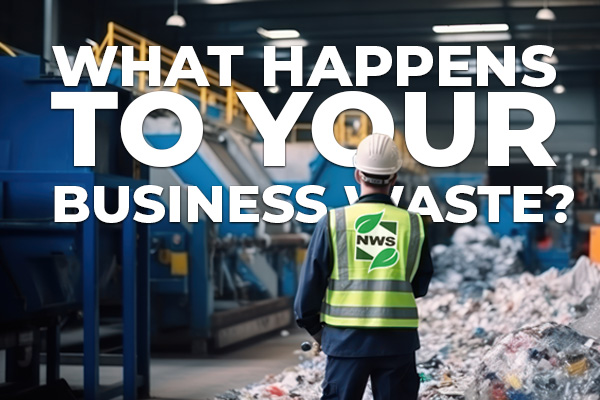The world is at a pivotal moment in the fight against environmental degradation and resource depletion. As concerns about climate change and sustainability continue to escalate. There has been a growing focus on advancing recycling technologies and embracing the principles of the circular economy. In this Nationwide Waste Services Article. We will explore the latest advances in recycling for business. With a particular emphasis on reclaiming precious metals from electronics and electric vehicles. Extracting fuel from waste, and other innovative solutions that are reshaping the future of recycling. We will also discuss the opportunities these advancements present for businesses. And how they can tap into the emerging recycling revolution.
Reclamation of Precious Metals from Electronics and Electric Vehicles
Electronic waste, or e-waste, has become a significant environmental concern in recent years. Given the rapid pace of technological advancement and the short lifespan of electronic devices. However, within this challenge lies an opportunity – the reclamation of precious metals from e-waste. Electronics contain a wealth of valuable materials, including gold, silver, platinum, and rare earth metals. These can be extracted and reused in new products.

Advances in Recycling for Business have made it increasingly feasible to recover these precious metals from electronic devices efficiently. Processes such as mechanical shredding, chemical leaching, and pyrometallurgical techniques are being employed to extract valuable metals from circuit boards, batteries, and other electronic components. These reclaimed materials can then be reintroduced into the manufacturing supply chain, reducing the need for virgin resources and minimizing environmental impact.
Similarly, the rise of electric vehicles (EVs) has created new opportunities for recycling precious metals. EV batteries, which contain lithium, cobalt, nickel, and other valuable materials, can be recycled to recover these elements for reuse in new battery production. As the adoption of EVs continues to grow, the demand for battery recycling services is expected to surge, presenting a lucrative market for businesses operating in this space.
Fuel from Waste Technology
In addition to reclaiming precious metals, there has been significant progress in converting waste materials into valuable resources, particularly in the realm of fuel production. Advanced waste-to-energy technologies are enabling the conversion of organic waste, plastics, and other non-recyclable materials into renewable fuels such as biofuels, biogas, and synthetic fuels.
Biofuels, derived from organic matter such as agricultural residues, algae, and municipal solid waste, offer a sustainable alternative to fossil fuels, reducing greenhouse gas emissions and dependence on finite resources. Biogas, produced through anaerobic digestion of organic waste, can be used to generate heat, electricity, and even vehicle fuel. Additionally, advancements in synthetic fuel production techniques, such as gasification and Fischer-Tropsch synthesis, are enabling the conversion of waste-derived syngas into high-quality liquid fuels.

The emergence of fuel from waste technology represents a paradigm shift in the way we view waste management and energy production. By harnessing the energy potential of waste materials, businesses can not only reduce landfill disposal and mitigate environmental pollution but also generate revenue from the sale of renewable fuels.
Opportunities for Advances in Recycling for Business
The rapid advancements in recycling technologies and the shift towards a circular economy present numerous opportunities for businesses to innovate, diversify, and capitalise on emerging markets. Here are some key areas where businesses can tap into the new fuel/recycling revolution:
- Investment in Recycling Infrastructure:
Businesses can invest in the development of recycling infrastructure, including facilities for e-waste processing, battery recycling plants, and waste-to-energy facilities. By building or partnering with recycling facilities, businesses can play a pivotal role in driving the transition towards a more sustainable and resource-efficient economy. - Collaboration and Partnerships:
Collaboration across industries and value chains is essential for accelerating the adoption of recycling technologies and maximizing resource recovery. Businesses can explore partnerships with technology providers like Nationwide Waste Services. Also waste management companies, and government agencies to develop innovative recycling solutions and create new value streams. - Product Design for Recyclability:
Designing products with recyclability in mind is crucial for closing the loop in the circular economy. Businesses can incorporate eco-friendly materials, modular designs, and standardised components into their products. These will facilitate easier disassembly and recycling at the end of their lifecycle. - Circular Business Models:
Transitioning to circular business models, such as product-as-a-service, remanufacturing, and take-back programs. Can unlock new revenue streams and enhance customer loyalty. By extending product lifecycles and maximizing resource utilisation. Businesses like yours can reduce costs, minimize waste, and create a more sustainable business model. - Education and Awareness:
Educating employees, customers, and stakeholders about the importance of recycling and the benefits of a circular economy. Is essential for driving widespread adoption. Businesses can organise awareness campaigns, training programs, and sustainability initiatives. To foster a culture of environmental responsibility and inspire positive change.
Plastic Fantastic
In recent years, numerous innovations have emerged to address the global challenge of plastic waste. These innovations span various aspects of the plastic lifecycle, from production to disposal. Aiming to reduce the environmental impact of plastic materials. Here are some notable innovations in the realm of plastic waste:
Biodegradable and Compostable Plastics
Traditional plastics can take hundreds of years to decompose, contributing to long-term environmental pollution. Biodegradable and compostable plastics offer a more sustainable alternative by breaking down into natural compounds. When exposed to certain environmental conditions, such as heat, moisture, and microorganisms. These materials reduce the accumulation of plastic waste in landfills and oceans. Offering a viable solution for single-use items like packaging and utensils.
Chemical Recycling
Chemical recycling, also known as advanced recycling or plastic-to-plastic recycling, involves breaking down plastic waste into its molecular components to produce new plastic materials. Unlike mechanical recycling, which involves melting and reshaping plastic waste, chemical recycling allows for the conversion of a broader range of plastics, including mixed or contaminated plastics, into high-quality feedstock for manufacturing new products. This innovation has the potential to increase plastic recycling rates and reduce reliance on virgin plastic production.
Ocean Clean-up Technologies
With millions of tons of plastic waste polluting the world’s oceans, innovative technologies have been developed to remove plastic debris from marine environments. These technologies range from large-scale clean-up systems, such as floating barriers and vessels equipped with nets, to smaller-scale solutions like autonomous drones and underwater robots. By targeting plastic pollution at its source, these technologies aim to mitigate the environmental impact of plastic waste on marine ecosystems and wildlife.
Bioplastics and Bio-based Polymers
Bioplastics are derived from renewable biomass sources, such as plants, algae, or agricultural by-products, and offer a more sustainable alternative to conventional petroleum-based plastics. Bio-based polymers, such as polylactic acid (PLA) and polyhydroxyalkanoates (PHA), can be used to produce a wide range of biodegradable and compostable products, including packaging, textiles, and consumer goods. These materials reduce reliance on fossil fuels and mitigate the environmental footprint of plastic production and disposal.
Blockchain Technology for Plastic Waste Management
Blockchain technology, known for its transparency and traceability features, is being leveraged to improve accountability and efficiency in plastic waste management systems. By implementing blockchain-based platforms, stakeholders across the plastic value chain, including producers, recyclers, and consumers, can track the origin, movement, and treatment of plastic waste in real time. This transparency enhances recycling rates, reduces illegal dumping and littering, and incentivizes responsible plastic management practices.
Design for Recycling
Designing products with recyclability in mind is a fundamental aspect of sustainable plastic waste management. Innovations in product design focus on optimizing material selection, minimizing packaging waste, and facilitating disassembly and separation at end-of-life. By designing products for easier recycling and incorporating recyclable materials into manufacturing processes, businesses can reduce their environmental impact and contribute to a circular economy.
In Summary
As the world grapples with the challenges of environmental sustainability and resource scarcity. The need for innovative recycling solutions has never been greater.
Advances in Recycling for Business and reclaiming precious metals from electronics. Converting waste into fuel, and embracing circular business models are reshaping the future of recycling. Presenting unprecedented opportunities for businesses.
By investing in recycling infrastructure, fostering collaboration. Designing products for recyclability, adopting circular business models, and promoting education and awareness. Businesses like yours can position themselves at the forefront of the recycling revolution. Paving the way for a more sustainable future.

